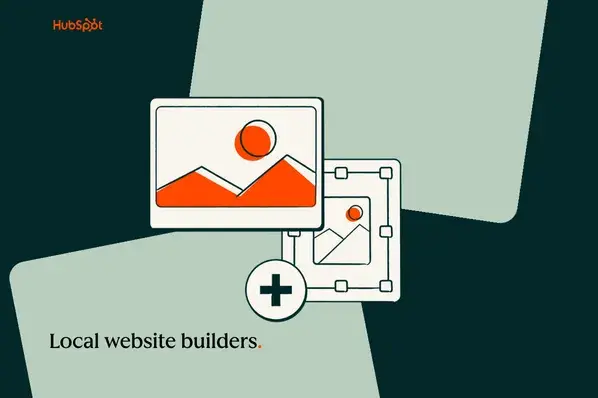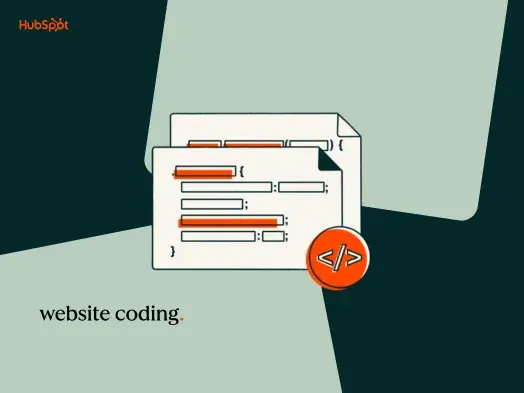Table of Contents
- Web Designer vs. Web Developer
- Types of Web Designers
- Web Designer Skills
- Types of Web Developers
- Web Developer Skills
- Web Designer vs. Web Developer Pay
- When to Hire a Web Designer vs. a Web Developer

What does a web designer do?
Web designers prioritize your site’s visual appeal and usability. Their objective is to achieve an aesthetically pleasing design while ensuring a user-friendly experience. They craft your site’s layout, incorporating elements that drive conversions and ensuring seamless mobile responsiveness across all pages.
Before working on a site, web designers usually engage with clients to understand their desired site type and features. With this information, they create an interface and user experience that is intuitive, engaging, and easy to navigate.
Web designers ensure the effectiveness of their designs through usability tests and gathering feedback from potential users. They also stay current with the latest website trends and technologies to deliver a modern and distinctive site experience.
When collaborating with web developers, web designers focus on a site's visual aspects and user experience. In contrast, web developers handle the site’s structure and overall functionality.
What does a web developer do?
Web developers specialize in building websites from scratch, leveraging their technical expertise and proficiency in complex coding techniques and advanced programming languages.
Unlike web designers who focus on the visual aspects, web developers are responsible for executing the design and bringing creative features to life. They handle frontend development, coding user-facing elements, as well as backend configurations for servers and databases.
Their work doesn’t end with the site launch. Web developers conduct post-launch tests, provide ongoing support, and ensure website maintenance. This includes addressing any overlooked bugs and ensuring the site functions smoothly.
Their technical skills and commitment to continuous improvement ensure that your website remains up-to-date and optimized for seamless user experiences.
Types of Web Designers
It’s extremely important to remember that not all web designers do the same activities. Most have distinct specializations that limit their focus to only one or two aspects of your website’s design.
The following are three types of web designers.

User Experience (UX) Designer
UX designers are in charge of ensuring that users have a pleasant experience when engaging with your website. They develop layouts and designs based on user feedback and data collected about your target demographic.
User Interface (UI) Designer
Individual interactions that users have with your site are the focus of UI designers. They evaluate numerous features of your website and predict how consumers will perceive them while moving through information.
UI designers are more concerned with the overall look and feel of your site, whereas UX designers make more data-driven judgments.
Visual Designer
Visual designers are responsible for both the user interface and the user experience. They ensure that your site has the proper blend of aesthetically pleasing elements and user-friendly functionality. They help fix design issues and ensure that the website correctly positions the company’s brand.
Depending on where your website is in the design process, you may need to hire one, two, or all three of these jobs to ensure an appealing and user-friendly design.
Web Designer Skills
To be a successful web designer, you need the following skills:
- Creativity and creative problem-solving.
- Understanding of design principles.
- Photo editing and graphic design skills.
- Communication and customer service.
- Experience with SEO.
- Familiarity with various coding languages.
- Detailed-oriented.
- Interpersonal skills.
- Understanding of marketing and business strategy.
- Project management.
In addition to these skills, web designers need to know how to use various tools. Below are some of the most prevalent.
Web Designer Tools
Here are some tools that web designers use:
- Content management system (Content Hub)
- Graphics editor.
- Screen design tools.
- Project management software.
- Wireframing tools.
- Debugging tools.
- Internal communication software.
- User testing tools.
Each of these tools has a different provider. The ones used by web designers will vary depending on the organization they work for, their familiarity with specific technologies, and their project budget.
Types of Web Developers
Similar to web designers, web developers will also typically have a specialization or a focus. Here are the most common types.

Backend Developer
All of your website’s background processes are handled by backend developers. Databases, server frameworks, and complex programming languages such as PHP, Java, and Ruby are all examples of this. Their role is to ensure that the site works properly and stays operational over time.
Frontend Developer
Frontend developers create everything that a user sees when engaging with a website. They build the visual elements that appear on your pages using HTML, CSS, Javascript, and other coding languages.
Much of their job overlaps with the design team, and they frequently cooperate with designers when developing new features or sections for a website.
Full-Stack Developer
A full-stack developer can do all of the tasks above. Depending on where they are needed, they can work on both the frontend and the backend of your website. They’re essentially a jack-of-all-trades web developer.
When comparing the differences between a web developer and a web designer, whether you’re researching these careers or looking for the best fit for a project, it’s critical to grasp the various characteristics each function brings to the table.
Web Developer Skills
Now, let’s look at the abilities required to be a proficient web developer.
- Familiarity with various frontend coding languages like HTML, CSS, and Javascript.
- Familiarity with various backend coding languages like PHP, Java, and Ruby.
- Analytical skills.
- Experience with content management systems (CMS) and ecommerce platforms.
- Communication skills.
- Creative problem solving.
- Experience with APIs.
- Project management.
- Interpersonal skills.
- Ability to multitask.
Mastering all of these talents is part of being a great web developer. The other aspect is being able to use the tools at your disposal efficiently. Let’s have a look at some of the most prevalent tools that web developers use on a daily basis.
Web Developer Tools
Here are the most common tools that web developers use:
- Code editors.
- Version control systems.
- Web application frameworks.
- Frontend application frameworks.
- API tools.
- Prototyping tools.
- Project management software.
- Internal communication software.
It’s worth noting that web developers and designers may use some of the same tools. With this in mind, it’s a good idea to select a web developer who is also familiar with web designer tools — and vice versa.
Web Designer vs. Web Developer Pay
According to Glassdoor, the average compensation for a web designer in 2023 is $57,915 per year, while the average salary for a web developer is $82,615 per year.
When it comes to calculating how much it will cost to build your site, you have to take into account that designers and developers typically are paid by the hour. In the United States, the average web designer is paid about $35, while the average web developer is paid $42.
So, if your site takes 40 hours to create, this will cost you around $2,000 in total. Depending on the size and complexity of your site, this estimate may grow or decrease based on the amount of time your designers and developers will devote to the project.
When to Hire a Web Designer vs. a Web Developer
Having a web developer and a web designer on your team can help you produce a better website. To be successful, hiring both isn’t always essential.
Your individual aims and vision will dictate whether you need a web designer or a web developer (or a combination). A web designer who can test usability and provide input on layout and design may suffice for basic websites. A web developer is required to bring your ideas to life for complex websites with advanced functionality.
Refer to the chart below for instances that can help you decide whether to hire a web designer or a web developer.

Do you need a web designer or a web developer?
The truth is that it depends. If you are a do-it-yourself-er and want help making your site look and feel excellent, you should consider hiring a web designer.
In contrast, if you have an ambitious design that will take a lot of time and work, you should probably engage a developer to oversee the development of your site. And, in certain circumstances, you’ll want both to ensure that your site looks amazing, operates well, and is done on schedule.
Each of these roles is crucial to the creation of a site and has unique opportunities to differentiate yours from peers’.
Consider what you want to do with your site, as well as the information above, while looking for the ideal individual for your company. Look for someone who understands your goals and can bring your vision to reality.
Website Development







![How to make a website with user accounts and profiles [with WordPress, Wix, and more]](https://53.fs1.hubspotusercontent-na1.net/hubfs/53/%5BUse%20(3).webp)
![How to build a Google Site that looks good and drives business [templates & examples]](https://53.fs1.hubspotusercontent-na1.net/hubfs/53/Website%20Redesign%20Terms.png)




